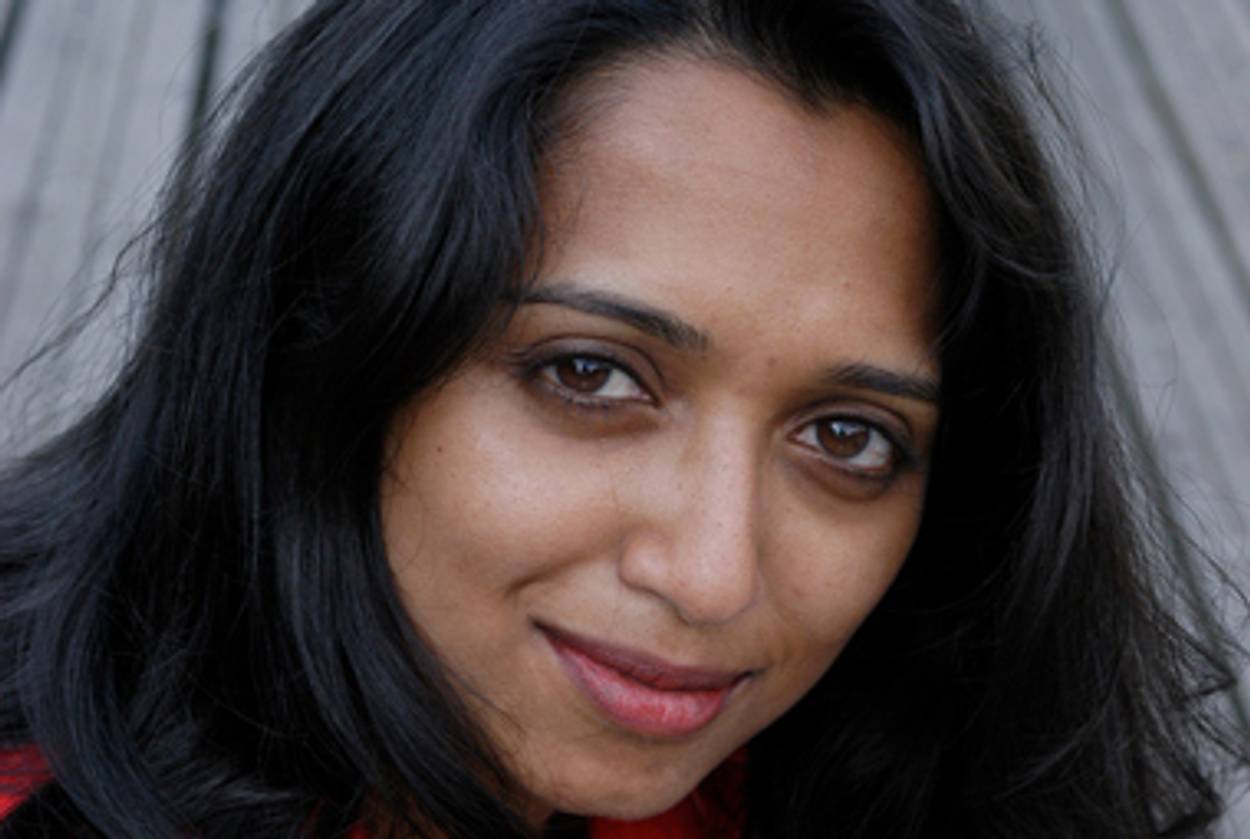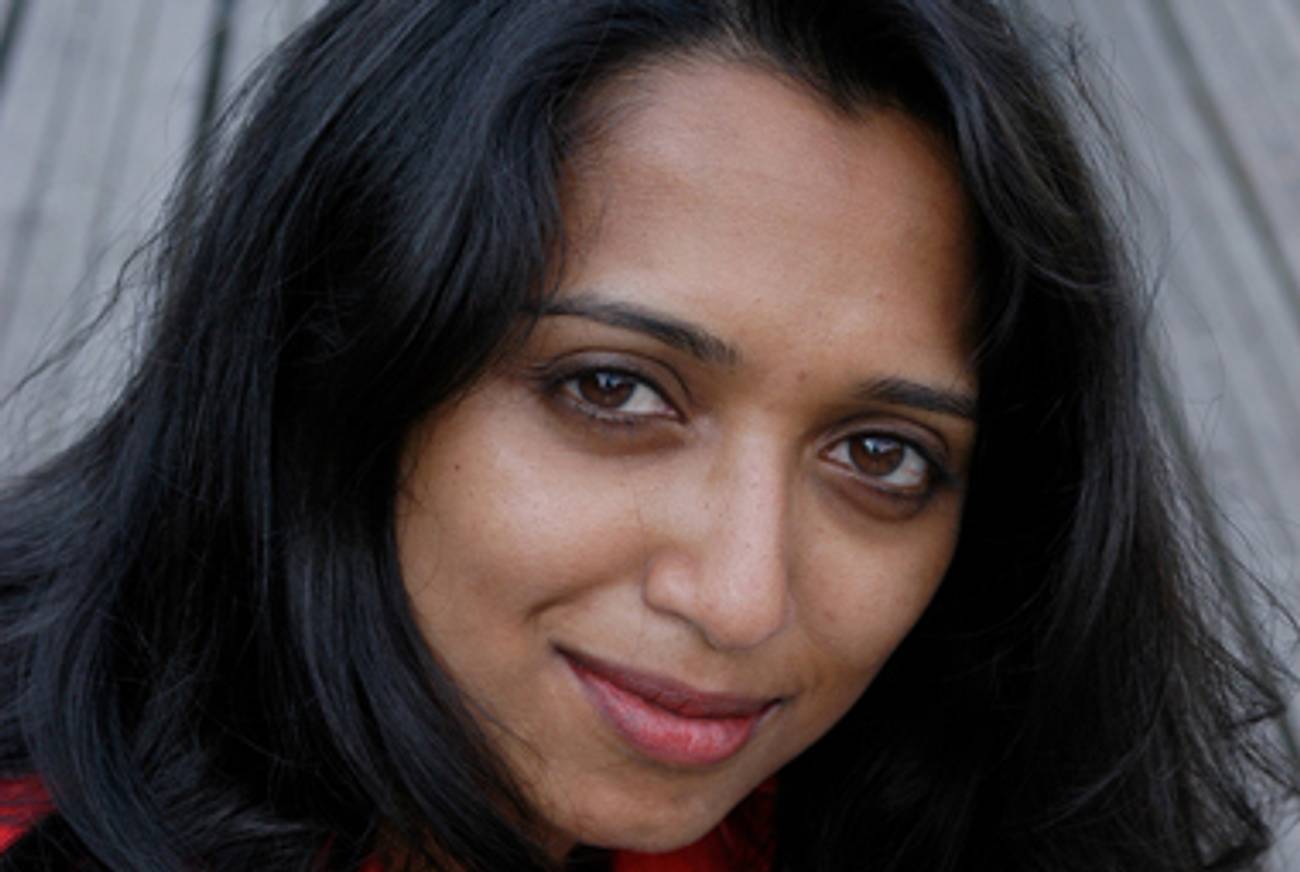Cast Away
In The Last Brother, novelist Nathacha Appanah shines light on the 1,500 European refugees held on Mauritius during World War II




The Last Brother, by French-Mauritian writer Nathacha Appanah (out this month from Graywolf Press), may seem a bit exotic to American readers. Set in the mid-1940s on the island of Mauritius, it is a lush, richly imagined novel, redolent of burning sugar cane, overripe mangoes, and flowering camphor trees. But Appanah’s novel has a twist that perhaps makes it doubly exotic, or mysterious, even to Mauritian and European readers: It concerns the friendship between Raj, a local 9-year-old boy, and David, a Jewish orphan from Prague who is being held in Mauritius with more than 1,500 other Jewish refugees. How did they end up on this island in the middle of the Indian Ocean? And why are they now being held captive in Beau-Bassin prison, when their ship’s original destination was Palestine? David’s story is largely only hinted at, a tale deciphered by Raj through David’s gestures, his eyes, his anguish—an unmistakable quality of hurt and loneliness that Raj, who has suffered his own family tragedy, recognizes immediately. Their deep and urgent bond—though mostly silent, it’s pierced at times with rollicking laughter and horseplay as well as a smattering of French and David’s expressive Yiddish—is what carries Appanah’s novel, which swings between moments of aching beauty and dark and terrifying tragedy. (The book’s central action involves Raj and David’s own attempted flight to freedom through the island’s dense forest, precipitated by a series of events including a devastating cyclone, a prison riot, and David’s escape through a hole in the prison fence.) I recently spoke by phone with Appanah, who is based in Paris, to discuss the fascinating, if obscure, historical genesis of her novel.
How did you first come upon the material of the Jewish World War II refugees in Mauritius, and when did you know you wanted to write about it?
Actually, I came across it quite randomly. I had a friend who told me about this history while I was still in my twenties, and I was completely shocked. I was born and raised in a country that remained extremely innocent about the Second World War. At the time I found about this episode, I was already living in France, and the legacies of the two World Wars were very prevalent all around me. In France, there are memorials everywhere—sometimes you walk down a street and you suddenly see flowers and notes to someone killed in the Second World War. I was very moved by that. Here I was used to thinking that I was from a country that was far removed from all that, and then I learned about this history and was shocked.
I was at work on my second book then. My stories always take a long time to unravel in my mind, and I just kept reading and searching for more information about the history of Jewish refugees in Mauritius. I couldn’t find much about it anywhere, yet the thought stayed with me and continued to call to me in different ways. I wanted to write about how someone who doesn’t know anything about the larger world, who knows nothing about Jewish life, who hasn’t even heard the word ‘Jew’ before—I wanted to write about what happens when these two vastly different histories meet.
And what has been the reaction to your novel, both in France and Mauritius? Is there more discussion, or even acknowledgment, of the subject now?
Well, in France, The Last Brother has been successful since it was published in 2008. And it has had a very positive reaction in Mauritius as well. More articles have appeared, and when I was there a year ago I spoke about the book at colleges, and the students did a series of projects on the subject as well. So, yes, people are learning about it and talking about it, even if it still seems like a slow and belated process.
Did you visit the Jewish cemetery in Mauritius when you were working on the book? The novel ends with a powerful scene at the gravesite decades later, as the Jewish survivors of Beau-Bassin prison have returned to commemorate those who died there.
Yes, I did visit the Jewish cemetery, but I visited it afterwards because I knew it would be very moving for me and I didn’t want it to interfere with my writing. So, I figured I’d go after writing the book. And it was very moving. There were, of course, gravestones from 1941 to 1945 there, which had been restored in the 1960s with new headstones with the proper spellings of the names. That was quite moving to see.
Through a short, invented newspaper article on that final ceremony we get a little more of a glimpse of the details of the ship, The Atlantic, that arrived in Port-Louis, Mauritius on December 26, 1940 with roughly “1,500 Jews on board.” According to the piece, “Among them were Austrians, Poles, and Czechs, in flight from Nazism following the autumn of 1939. Some of them had boarded the ship at Bratislava, others at Tulcea in Romania.” Their intended destination was Palestine, correct?
Yes, they were heading for Haifa, which was under British mandate at the time. But when they arrived there, they were considered illegal immigrants without proper documents. The British government—or their overseas department—decided to take them to Mauritius, which was a British colony then. According to the British, the line was that these people were illegal immigrants so they were put in a prison. They didn’t know why they were there or when they’d get out. It’s not easy to describe what it was like for them in Mauritius—where the refugees lived was somewhere between a prison and a camp. And they had no idea where they were either; here they were somewhere in the middle of the Indian Ocean. They’d never been to a tropical island like this before, had never even heard of a place like Mauritius.
And the locals had no idea who these European refugees were either, right? Raj, for his part, is thoroughly baffled by these sickly, ghost-like white people being held behind bars. He’s accustomed to seeing white people in positions of power, as bosses of the sugar factory, for instance.
Well, in all my research I came across only maybe two or three articles in the local papers, in which they were simply called “the detainees.” But there’s not a hint about the Second World War, just factual information about this boat coming in and these people going to prison. Nothing more. So, no, there was very little if anything known about what they had been through before arriving there.
Tell me more about the book’s two main characters, Raj and David, and how you transformed this historical material into the more intimate story of their friendship. Was it difficult to create David, in particular? Even Raj falters when trying to conjure up his past.
Well, the story really started with David, but I thought it would be inappropriate of me to try to tell it in David’s voice. I wanted to create a story of a friendship between two boys who don’t know anything about each other, but then I also thought that telling the story from the children’s point of view could make it seem a bit flat. So, that’s why I told the story through Raj’s eyes, but with Raj being much older, looking back over many decades.
Aharon Appelfeld did a series of conferences here in France while I was writing the book, and that helped me a lot with David’s character. While I was writing I was under the impression that David was here but wasn’t here—it’s hard to explain. I could really grasp Raj, but David was trickier: He would do everything Raj would do, just like a younger brother would do. And I was bothered by this, not sure if it was quite right. I knew I had to flesh out David’s character more, and then I heard Appelfeld describe how he had lived in the woods during the Second World War and that when the war was over, he survived but had lost everybody. He had no family and had completely forgotten what he was. So, he would meet someone who was, say, a clown and he’d be a clown, too; he’d meet someone who was a farmer, and he’d be a farmer, too. I guess my instinct about David being here but not being here, about Raj being like the older brother for the first time, had some truth to it.
David’s Yiddish, it seems, is one of the few things that link him to his past and it has a regenerative quality all its own. There’s a touching scene in which he sings to Raj while they’re alone and frightened in the woods.
Oh, yes, it is a link to his past; it is. Some people have said to me that my book is very sad, but I don’t see it that way. I see Raj as someone who has been through a lot but with David’s help has managed to become a good man—a good father, a good husband, a good son. I see him as someone who has tried to turn his sadness into something that he could be proud of, and that’s why it was important for me to show him as an older man looking back on his childhood experiences.
The Last Brother recalled for me a few of my favorite books, which I haven’t read for a long time: the French-Jewish writer André Schwarz-Bart’s The Last of the Just and his Guadeloupian wife Simone Schwarz-Bart’s A Woman Named Solitude and The Bridge of Beyond. Several other Caribbean writers also come to mind, from Patrick Chamoiseau to Jamaica Kincaid. Are these writers who have influenced you in any way?
Well, all of the writers you mention are important to me. I very much like Jamaica Kincaid and all of Andre Schwarz-Bart and Simone Schwarz-Bart. I have a real fondness for him, not only for what he’s written but for the man he was. I think he was, indeed, a good and just man.
I suppose the comparison to these authors is a result of the obvious parallels between the Caribbean and Mauritius—the colonial history, the sugar economies, the stratified racial milieu. But tell me more about your other books: Do they also explore aspects of Mauritius’ little-known past?
Well, my first novel was set in India and Mauritius and tells the story of Indian immigrants coming to Mauritius from Bombay at the end of the 19th century. My second book was also set in Mauritius and my third here in France. The Last Brother is my fourth book, and I’m working on the next one right now. But it’s still too early to say how it will come out. As I’ve said, I’m a very slow worker.
Anderson Tepper‘s last piece for Tablet Magazine was about the Brazilian novelist Clarice Lispector.
Anderson Tepper‘s last piece for Tablet Magazine was about the Brazilian novelist Clarice Lispector